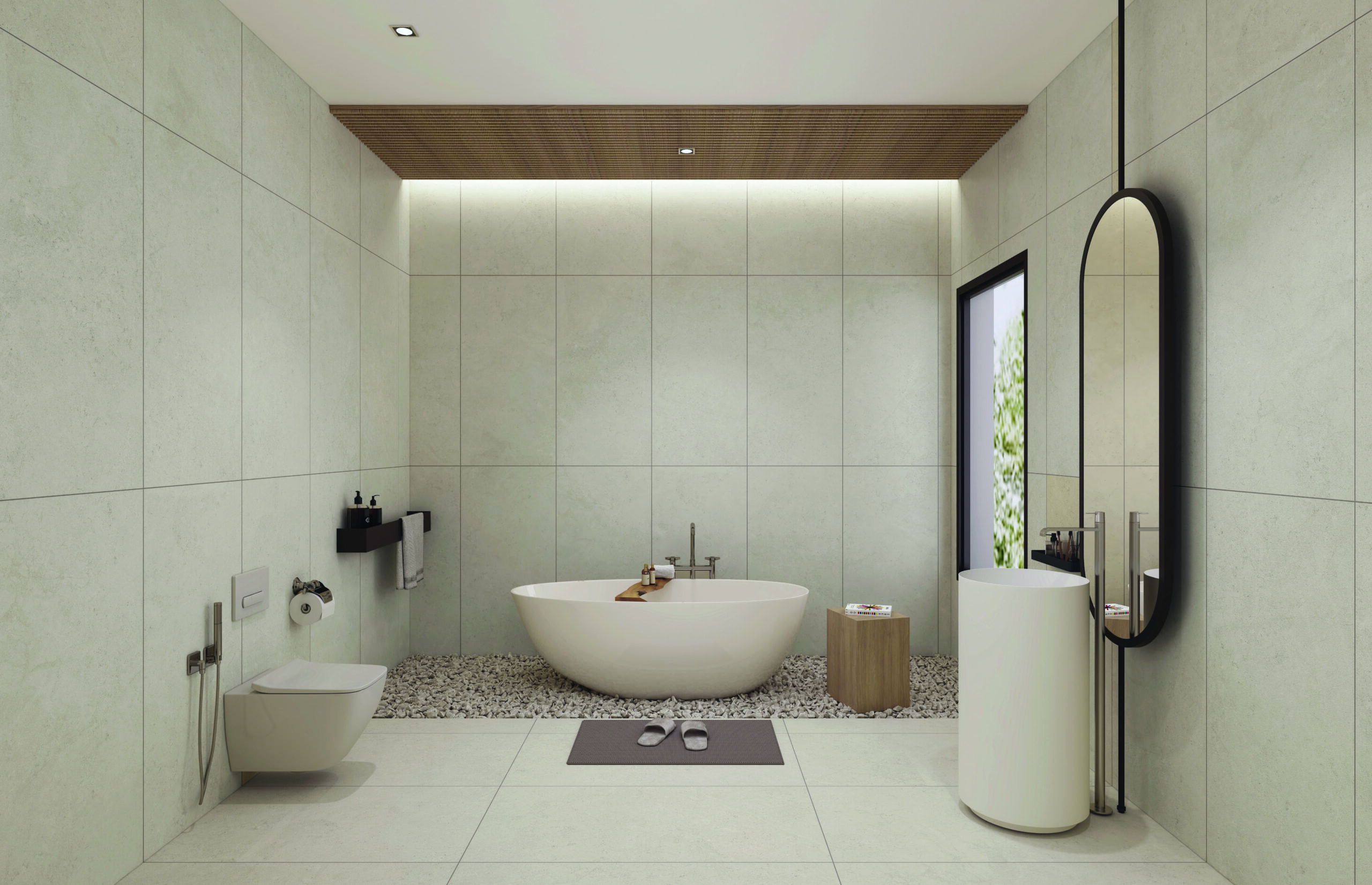Similar Tiles
Pursuing Perfection in Your Dwelling
Refine every edge of your space with augmented reality. Seamless virtual design innovations redefine your physical environment, creating an ideal living space that reflects your personal style with unparalleled comfort and aesthetic appeal, now at your fingertips.
- A complete interior illustration with no charges.
- Hassle-free experience anytime and anywhere.
- Fast and easy designing at your comfort.


Frequently asked questions
What is the difference between ceramic floor tiles and porcelain floor tiles?
Ceramic tiles are made from clay, sand, and other natural minerals. They're extremely durable and are usually moisture, stain and wear resistant and very easy to clean and maintain.
Porcelain is actually a type of ceramic and made from finely grained porcelain clay and minerals. They are shaped and fired at temperatures higher than ceramics making them extremely solid and moisture resistant, more so than non-porcelain ceramic tiles. Porcelain has a water absorption rate below 0.5%.
What are stone tiles?
Stone tiles are cut to show the natural texture of rock which has more variations, fissures, and other possible flaws. It is unmatched for natural beauty but requires more maintenance and is more expensive than other tile types.
What are the other different tile types?
Besides ceramic and stone tiles (which are the most popular) there are a large variety of other tile types to consider. These are:
- Brick which is a popular choice for outdoor areas and give a more rustic feel.
- Cement tiles for durability and low maintenance.
- Encaustic tiles which are tiles inlaid with design or patterns and are available glazed and unglazed.
- Glass tiles are frosted or iridescent tiles and can be used for installation in most household areas. Keep in mind they are very slippery when wet.
- Granite tile are suitable for flooring as they give an impression of depth.
- Marble tiles can be slippery if polished and are only used in low-traffic areas.
- Saltillo tiles are unique in appearance, as they come in shades of red, orange and yellow. They tend to be less durable and more porous and are best suited for warm areas.
- Slate tiles are a type of stone tiles with a natural grain or smooth finish and are darker in colour.
- Terra Cotta tiles must be treated first as they are naturally absorbent. They bring a warm look and are made from the same material as clay garden pots.
- Terrazzo tile is considered a "green" tile as 95% of its content is made from recycled materials.
What is the difference between glazed and unglazed foor tiles?
Glazed floor tiles are coated with a glassy finish that gives colour, texture and design and is fired at very high temperatures. Unglazed floor tiles don't have this glassy finish and their colour comes from the natural look of the clay and other minerals it is made from. Unglazed tiles are good for high-traffic areas as the colour doesn't wear off as easily as glazed tiles.
What is the average lifetime of tile flooring?
If properly installed and maintained, ceramic floor tiles can last a lifetime, with porcelain known to be the longest lasting.
What is grout?
Grout is a type of mortar used to fill joints, cracks, and cavities in tiles, masonry and brickwork. It usually consists of water, sand, and cement or just cement and water.
In semi-liquid form it can be pumped, spread, or poured into cavities to harden into a tight, water-resistant seal.
There are three main types of grout - epoxy, Portland cement-based, and furan resin. Epoxy is strong and water resistant and available as both 100 percent epoxy resin and modified epoxy emulsion form. Epoxy grout is more expensive than other types and can be difficult to find. However, it is considered highly effective when a high level of water and stain resistance is desired.
How do I choose the right grout for my floors?
It is recommended that you choose a colour that blends with the colours of the floor tile. Darker grout is easier to keep clean and modern grout is often stain and mildew resistant, making maintenance very simple.
How can I clean my tile and grout?
Use cleaners that are pH-neutral cleaning solutions. Don't use acid-based cleaners that "clean" by removing desirable material. Acids can destroy certain ceramic glazes and weaken grout by leaving it more porous. Porous grout will trap stains and dirt deep within the cell structure, making it difficult and impossible to clean.
Should I seal my grout?
Yes, especially in areas which are prone to wetness. Grout is not waterproof and will absorb water. Sealing the surface will help prevent water from penetrating the tile installation, preventing mildew and making it easier to maintain and clean. Sealing should be done when the tile surface is freshly laid and kept up every few years thereafter.
What tools will I need for tile laying?
In general, for most installations you would need the following:
- Proper sized notched trowel
- Measuring tape
- Chalk line
- Margin trowel
- Nippers
- High amp low speed drill and mixing paddle (The best would be a 6 amp or better and less than 400 rpm)
- Several buckets
- Score and snap cutter for straight ceramic cuts
- 4 1/2" grinder with a continuous rim dry diamond blade for ceramic, anything other than straight cuts
- Wet saw (can be used for ALL cuts, ceramic or stone)
- Grout float
- Hydra grout sponges (2-- once for grouting, one for cleaning)
- 24" and 48" levels (for vertical work)
- Heavy duty extension cords
- Knee pads for comfort
- Screwgun or nailgun

















